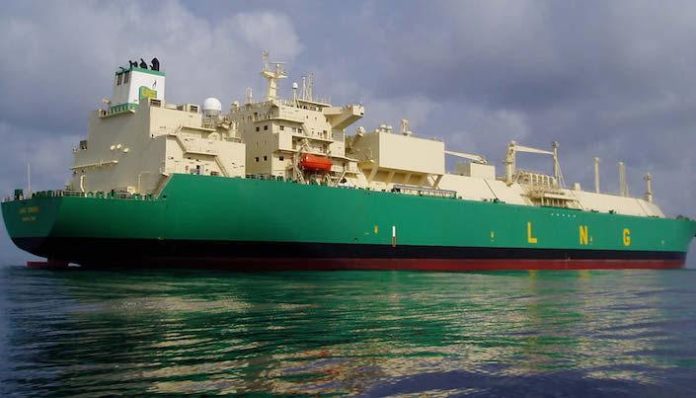The operational crisis at NLNG Limited has deepened as its Bonny Island facility remains offline, with gas supply plummeting by 80 percent.
Industry sources told Bloomberg on Tuesday that NLNG Ltd. now receives just one-fifth of the gas required to sustain full operations.
This prolonged disruption, caused by persistent pipeline vandalism, raises concerns about Nigeria’s ability to meet export commitments and its broader economic impact.
Bloomberg data suggests that falling output from Nigeria’s only LNG plant could push global gas prices higher, particularly in Asia and Europe, as supply tightens.
Europe, which depends heavily on NLNG for gas imports, faces heightened vulnerability due to these disruptions.
In 2024, almost half of Nigeria’s LNG exports were sent to Asia, with another third directed to Europe and the remainder split between the Americas and the Middle East.
Philip Mshelbila, Managing Director of NLNG Limited, acknowledged the company’s struggle to meet global LNG demand due to widespread damage caused by illegal pipeline connections.
“At present, I am only running two trains out of six,” Mshelbila revealed during a panel session at the Nigeria International Energy Summit.
The NLNG boss emphasized the urgent need for a reassessment of energy security, noting that while oil infrastructure has seen improved protection, gas infrastructure remains highly vulnerable.
“Energy security must be treated as national security. Gas security, however, has deteriorated. Until these pipelines are secured, we will continue to underperform,” he warned.
NLNG, a critical player in the global LNG market, continues to suffer operational setbacks due to repeated attacks on key gas pipelines.
These attacks, often linked to militant groups and criminal syndicates in the Niger Delta, have forced significant shutdowns, drastically cutting production capacity.
This disruption comes amid ongoing global energy market instability, further tightening an already volatile gas supply chain.
The economic consequences for Nigeria are severe. NLNG is a major revenue contributor, generating billions of dollars annually for the national treasury.
The prolonged facility outage translates to massive export losses, reducing government revenue and foreign exchange inflows at a critical time.
In February, Nigeria’s LNG exports fell by 40 percent compared to the previous month, according to Bloomberg data.
Experts warn that continued pipeline attacks could jeopardize NLNG’s projected N727 billion dividend payout to the federal government by 2025, a 113 percent increase from the N346 billion recorded last year.
BusinessDay data shows that over the past 25 years, NLNG has disbursed $44 billion in dividends, with the federal government receiving $21.56 billion.


